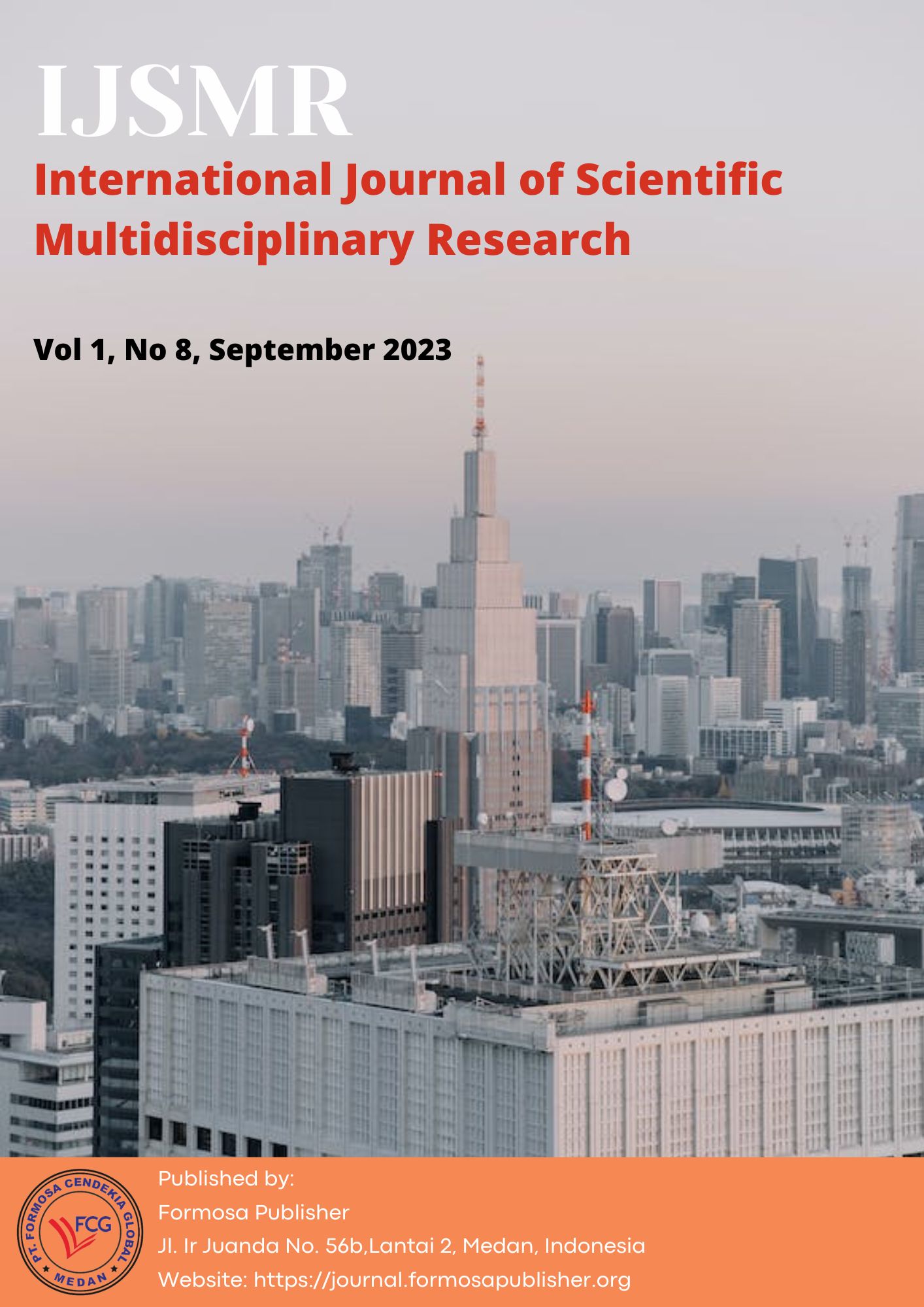Building Leadership Skills in Educational Leadership: A Case Study of Successful School Principals
DOI:
https://doi.org/10.55927/ijsmr.v1i8.3571Keywords:
School Leadership, Collaborative Decision-Making, Relationship Building, Professional DevelopmentAbstract
This study examined the key characteristics and practices of successful school principals, as perceived by teachers, parents, and students. Four themes emerged from the data: collaborative decision-making, relationship building, continuous professional development, and visionary leadership. Successful principals were found to prioritize collaboration, involving all members of the school community in decision-making processes, and building positive relationships with staff, students, and parents. They also placed a strong emphasis on continuous professional development, both for themselves and their staff, and were able to articulate a clear vision for their school and communicate that vision effectively to all stakeholders. The study highlights the importance of effective school leadership in promoting a positive school culture and improving student achievement. The findings suggest that successful school leaders must be able to work collaboratively, build positive relationships, prioritize ongoing professional development, and articulate a clear vision for their school. These characteristics and practices can serve as a guide for aspiring and current school leaders, as well as for those involved in the recruitment and selection of school principals
Downloads
References
Ajibade, S. S. M., Dayupay, J., Ngo-Hoang, D. L., Oyebode, O. J., & Sasan, J. M. (2022). Utilization of Ensemble Techniques for Prediction of the Academic Performance of Students. Journal of Optoelectronics Laser, 41(6), 48-54.
Asah, S.T., Blahna, D.J. (2020. Involving Stakeholders’ Knowledge in Co-designing Social Valuations of Biodiversity and Ecosystem Services: Implications for Decision-Making. Ecosystems 23, 324–337. https://doi.org/10.1007/s10021-019-00405-6
Bellibaş, M. Ş., Kılınç, A. Ç., & Polatcan, M. (2021). The Moderation Role of Transformational Leadership in the Effect of Instructional Leadership on Teacher Professional Learning and Instructional Practice: An Integrated Leadership Perspective. Educational Administration Quarterly, 57(5), 776–814. https://doi.org/10.1177/0013161X211035079
Burnette, J. L., Pollack, J. M., Forsyth, R. B., Hoyt, C. L., Babij, A. D., Thomas, F. N., & Coy, A. E. (2020). A Growth Mindset Intervention: Enhancing Students’ Entrepreneurial Self-Efficacy and Career Development. Entrepreneurship Theory and Practice, 44(5), 878–908. https://doi.org/10.1177/1042258719864293
Deped Memorandum No. 050, s. 2020 retrieved from https://www.deped.gov.ph/wp-content/uploads/2020/05/DM_s2020_050.pdf
Ferri, F., Grifoni, P., & Guzzo, T. (2020). Online Learning and Emergency Remote Teaching: Opportunities and Challenges in Emergency Situations. Societies, 10(4), 86. https://doi.org/10.3390/soc10040086
Hallinger, P., & Hosseingholizadeh, R. (2020). Exploring instructional leadership in Iran: A mixed methods study of high- and low-performing principals. Educational Management Administration & Leadership, 48(4), 595–616. https://doi.org/10.1177/1741143219836684
Jill J. Francis, Marie Johnston, Clare Robertson, Liz Glidewell, Vikki Entwistle, Martin P. Eccles & Jeremy M. Grimshaw (2010) What is an adequate sample size? Operationalising data saturation for theory-based interview studies, Psychology & Health, 25:10, 1229-1245, DOI: 10.1080/08870440903194015
Kenneth Leithwood, Alma Harris & David Hopkins (2020) Seven strong claims about successful school leadership revisited, School Leadership & Management, 40:1, 5-22, DOI: 10.1080/13632434.2019.1596077
Kilag, O. K. T. ., Ignacio, R. ., Lumando, E. B., Alvez, G. U. ., Abendan, C. F. K. ., Quiñanola, N. M. P. ., & Sasan, J. M. (2022). ICT Integration in Primary School Classrooms in the time of Pandemic in the Light of Jean Piaget’s Cognitive Development Theory. International Journal of Emerging Issues in Early Childhood Education, 4(2), 42–54. https://doi.org/10.31098/ijeiece.v4i2.1170
Kilag, O. K. T., & Sasan, J. M. (2023). Unpacking the Role of Instructional Leadership in Teacher Professional Development. Advanced Qualitative Research, 1(1), 63-73.
Leehu Zysberg & Nitza Schwabsky (2021) School climate, academic self-efficacy and student achievement, Educational Psychology, 41:4, 467-482, DOI: 10.1080/01443410.2020.1813690
Matthew R. Malone, Laura M. Groth & Joshua L. Glazer (2021) Leading in complex environments: the role of leadership in multi-school organization improvement, School Leadership & Management, 41:4-5, 352-369, DOI: 10.1080/13632434.2021.1948397
Mehmet Şükrü Bellibaş, Sedat Gümüş & Yan Liu (2021) Does school leadership matter for teachers’ classroom practice? The influence of instructional leadership and distributed leadership on instructional quality, School Effectiveness and School Improvement, 32:3, 387-412, DOI: 10.1080/09243453.2020.1858119
Morse JM. (2015). Critical Analysis of Strategies for Determining Rigor in Qualitative Inquiry. Qualitative Health Research; 25(9):1212-1222. doi:10.1177/1049732315588501
Ng, S., & Szeto, S. E. (2016). Preparing school leaders: The professional development needs of newly appointed principals. Educational Management Administration & Leadership, 44(4), 540–557. https://doi.org/10.1177/1741143214564766
Nowell, L. S., Norris, J. M., White, D. E., & Moules, N. J. (2017). Thematic Analysis: Striving to Meet the Trustworthiness Criteria. International Journal of Qualitative Methods, 16(1). https://doi.org/10.1177/1609406917733847
Rashid, Y., Rashid, A., Warraich, M. A., Sabir, S. S., & Waseem, A. (2019). Case Study Method: A Step-by-Step Guide for Business Researchers. International Journal of Qualitative Methods, 18. https://doi.org/10.1177/1609406919862424
Sasan, J. M., & Baritua, J. C. (2022). Distance learning as a learning modality for education during the COVID-19 pandemic. Science and Education, 3(8), 35-44.
Sasan, J. M., & Rabillas, A. R. (2022). Enhancing English proficiency for Filipinos through a multimedia approach based on constructivist learning theory: a review. Science and Education, 3(8), 45-58.
Downloads
Published
How to Cite
Issue
Section
License
Copyright (c) 2023 Osias Kit T. Kilag, Marsha Heyrosa-Malbas, Durivil D. Ibañez, Gliezel A. Samson, John Michael Sasan

This work is licensed under a Creative Commons Attribution 4.0 International License.
















